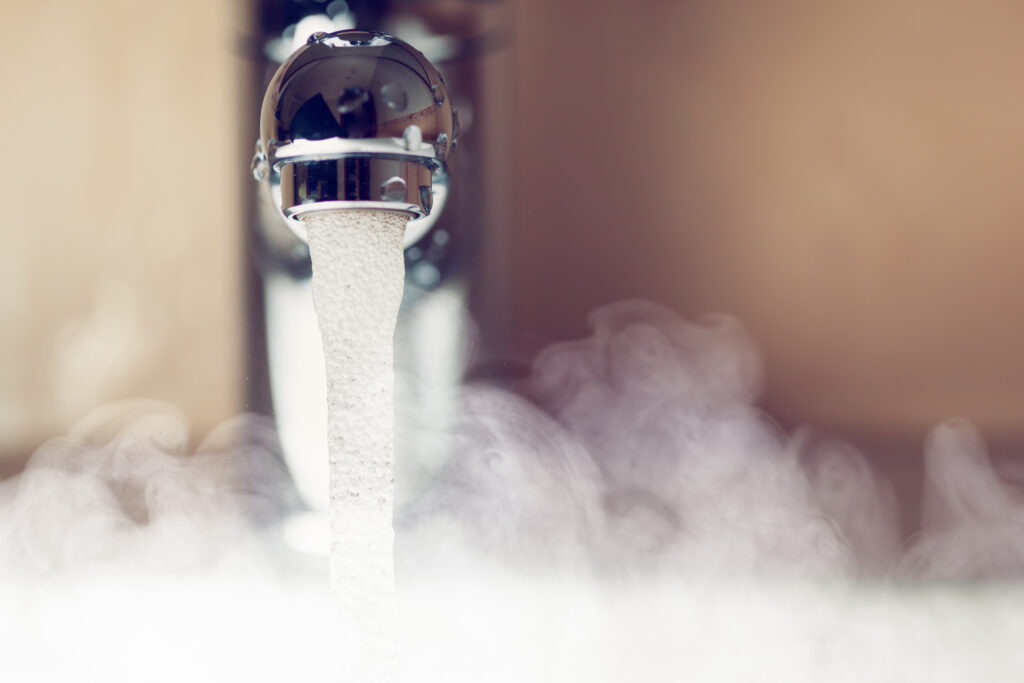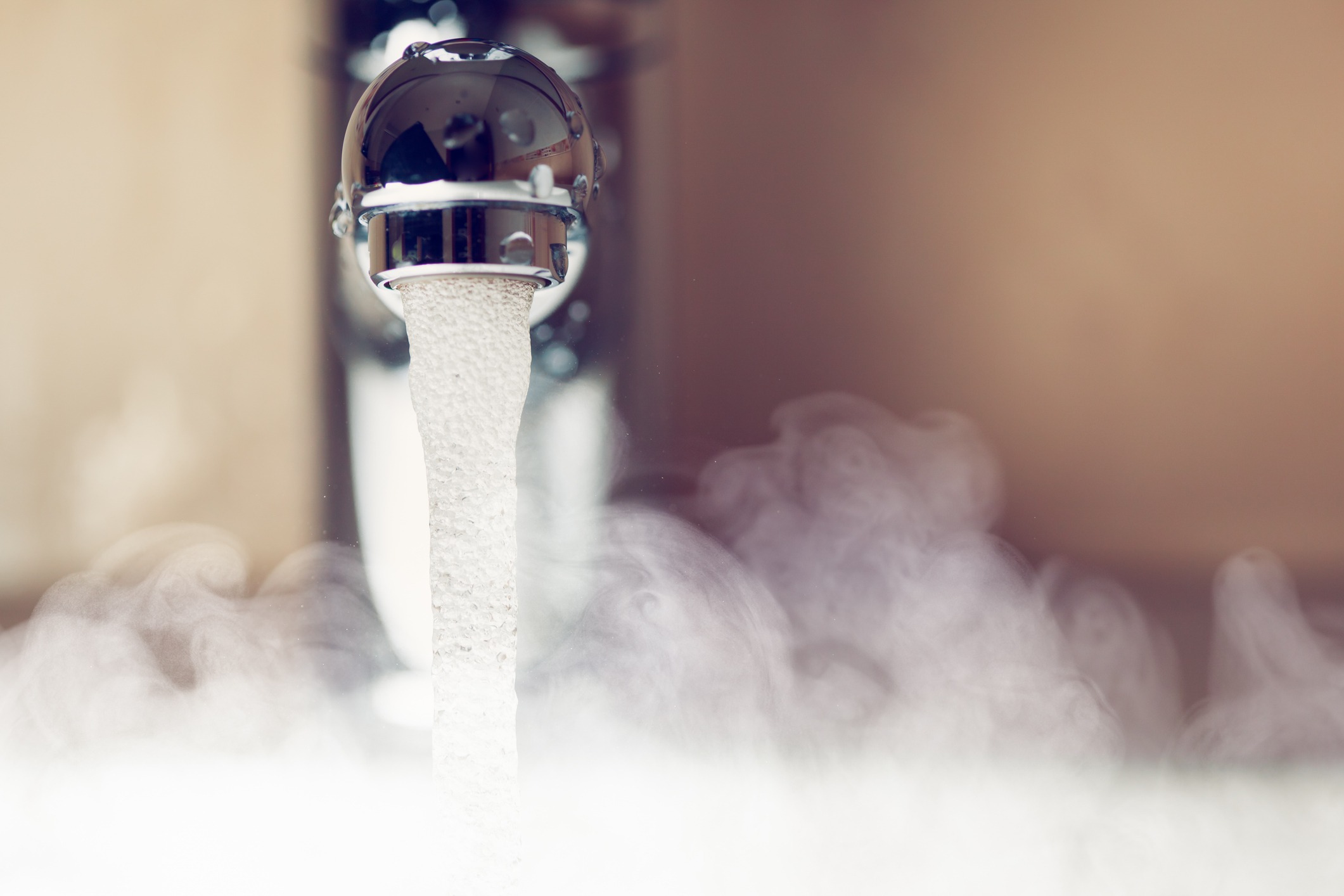If your traditional tank-style water heater is nearing the end of it’s expected lifespan or it’s simply no longer meeting your household’s hot water needs, you’ll be glad to know that you now have more options than ever. And if your goal is to reduce energy consumption and save a few bucks on your utility bills, you’ll want to take a close look at two options in particular: Tankless and heat pump water heaters. Both offer a host of benefits, but choosing between a heat pump water heater (HPWH) and a tankless water heater involves considering various factors.
Here’s a detailed guide to help you determine which option is best for your home.

Understanding Tankless Water Heaters
Tankless water heaters, or on-demand water heaters, heat water only when needed, eliminating the standby heat loss associated with storage tanks.
Pros:
- Endless Hot Water: Provides a continuous supply of hot water, making it perfect for large families or homes with high hot water demands.
- Space-Saving: Compact and can be installed in smaller spaces like closets or on walls.
- Energy Efficiency: No standby heat loss, which can lead to lower energy bills compared to traditional water heaters.
Cons:
- Initial Cost: Higher upfront costs for the unit and installation, especially if retrofitting is necessary.
- Flow Rate Limitations: May struggle to provide sufficient hot water for multiple simultaneous uses, such as showering while running a dishwasher.
- Maintenance: Regular descaling is required, particularly in areas with hard water.
Understanding Heat Pump Water Heaters
Heat pump water heaters work by transferring heat from the surrounding air to heat the water. They are known for their high energy efficiency and can significantly reduce your utility bills.
Pros:
- Energy Efficiency: HPWHs can be two to three times more efficient than conventional electric water heaters, making them an eco-friendly option.
- Cost Savings: Although the initial cost is higher, the lower energy consumption can lead to substantial savings over time.
- Consistent Hot Water Supply: Ideal for households with regular hot water needs due to the storage tank.
Cons:
- Initial Cost: Higher upfront investment compared to conventional heaters.
- Space Requirements: Requires more space and good air circulation, often necessitating installation in a basement or garage.
- Climate Sensitivity: Efficiency can decrease in colder climates, potentially making them less effective during winter.
Factors to Consider
Hot Water Usage:
- If your household has a high demand for hot water or uses multiple hot water outlets simultaneously, a tankless water heater may be more suitable due to its ability to provide endless hot water. However, ensure the system can handle peak usage.
- For consistent but not overly high demands, a HPWH can be highly efficient and provide a steady supply of hot water.
Budget:
- Consider both the initial costs and the long-term savings. While HPWHs and tankless water heaters both have higher upfront costs than traditional heaters, they offer energy savings that can reduce your utility bills over time.
Space Availability:
- HPWHs require more installation space and good ventilation. If you have a basement or garage, this might not be an issue.
- Tankless water heaters are compact and can fit in smaller areas, offering flexibility in installation locations.
Climate:
- In warmer climates, HPWHs can operate more efficiently, taking advantage of the ambient heat.
- In colder climates, tankless water heaters may be more reliable, as they are not affected by low ambient temperatures.
Making the Decision
Still unsure which type of water heater is right for your home? Contact Eagle Service Company today. We’ll evaluate your home’s specific needs and circumstances, consider your hot water usage, budget, space, and climate, so that you can make an informed decision that meets your household’s needs.



